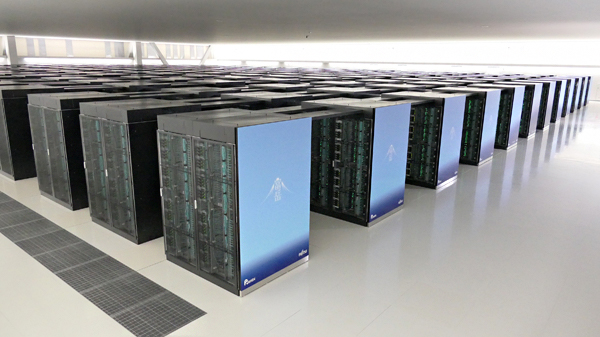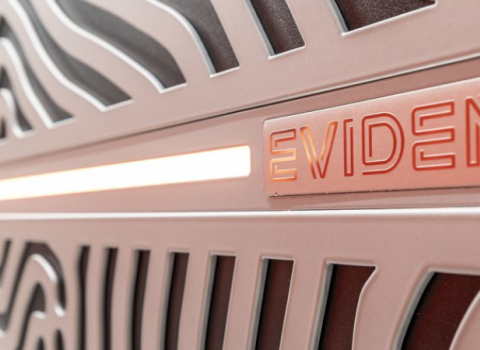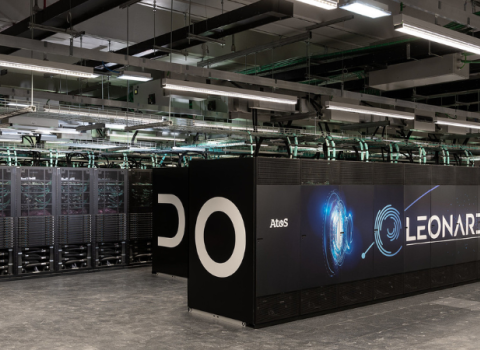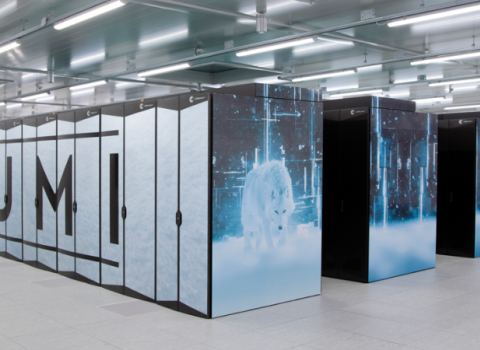The supercomputer Fugaku, which is being developed jointly by RIKEN and Fujitsu Limited based on Arm® technology, has again taken the top spot on the major high-performance computer rankings, including the Top500 list, in all of the rankings posting much higher scores than the runners-up. The other rankings are HPCG, a ranking of supercomputers running real-world applications, HPL-AI, which ranks supercomputers based on their performance capabilities for tasks typically used in artificial intelligence applications, and Graph 500, which ranks systems based on data-intensive loads. It also posted the highest score by far on the Graph 500 ranking. The awards were announced on November 16 (Japan time) at the SC20 High-Performance Computing Conference, currently being held as an online event.

The results this time were made with Fugaku’s full complement of 158,976 nodes fit into 432 racks. On the Top500, it achieved a LINPACK score of 442.01 petaflops, an improvement over the 415.53 petaflops set in June. On HPCG, it scored 16.00 petaflops, up from 13.40 last time, and on HPL-AI it gained a score of 2.004 exaflops, over 1.421 in June.
The top ranking on Graph 500 was won by a collaboration involving RIKEN, Kyushu University, Fixstars Corporation, and Fujitsu Limited. It solved a breadth-first search of an enormous graph with 1.1 trillion nodes and 17.6 trillion edges in approximately 0.25 seconds, earning it a score of 102,955 gigaTEPS, a major advance over the score of 70,980 gigaTEPS in June and more than four times the score attained by its nearest competitor, China’s Sunway TaihuLight, which performed at 23,756 gigaTEPS.
According to Satoshi Matsuoka, director of RIKEN R-CCS, “Ten years after the concept was launched, and six years after the official start of the project, Fugaku is nearly completed. We have begun trial operations with the aim to begin general use early next fiscal year, and we have already achieved many results. Fugaku was developed to achieve high performance on various applications of high public interest, such as those included in Japan’s Society 5.0 initiative; continuing our development efforts, we were again able to sweep the major rankings again, posting even better performance than six months ago, reflecting the groundbreaking performance that Fugaku exhibits over the wide range of real applications. In the future, I hope that Fugaku itself will come into wide use as a supercomputer in itself, but in addition, that the IT developed for Fugaku will come into widespread use around the world in a broader range of infrastructure including cloud applications, contributing to the solution of global problems such as COVID-19 and leading innovation in Japan.”
Naoki Shinjo, Corporate Executive Officer at Fujitsu Limited, stated “We are thrilled that we were able to take the top spot on the major benchmarks for the second consecutive term. This time, we were able to use Fugaku in its completed form and were able to make significant improvements upon the performance we attained in June, to prove the system’s high potential. In the future, we anticipate that Fugaku will demonstrate high application performance and will be widely used as a supercomputer contributing to the realization of Society 5.0. We would like to once again express our sincere gratitude to RIKEN and others for their great cooperation and support.”
Fugaku, which is currently installed at the RIKEN Center for Computational Science (R-CCS) in Kobe, Japan, is being developed under a national plan to design Japan’s next generation flagship supercomputer and to carry out a wide range of applications that will address high-priority social and scientific issues. It will be put to use in applications aimed at achieving the Society 5.0 plan, by running applications in areas such as drug discovery; personalized and preventive medicine; simulations of natural disasters; weather and climate forecasting; energy creation, storage, and use; development of clean energy; new material development; new design and production processes; and—as a purely scientific endeavor—elucidation of the fundamental laws and evolution of the universe. In addition, Fugaku is currently being used on an experimental basis for research on COVID-19, including on diagnostics, therapeutics, and simulations of the spread of the virus. The new supercomputer is scheduled to begin full operation in fiscal 2021 (which starts in April 2021).
This article was first published on 17 November by RIKEN.





 A unique international forum for public research organisations and companies to connect their external engagement with strategic interests around their R&D system.
A unique international forum for public research organisations and companies to connect their external engagement with strategic interests around their R&D system.